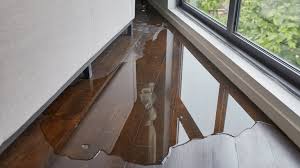Why Basements Are So Vulnerable
Basements often take the brunt of water damage from leaks, floods, and sewer backups. Unfortunately, many homeowners ignore the problem until it gets worse.Basements naturally sit below ground level, making them more vulnerable to groundwater seepage, foundation cracks, and sump pump failures. When water enters a basement, whether from heavy rain, a broken pipe, or poor drainage, it can pool quickly and go unnoticed for hours or even days. IICRC-certified professionals understand the unique challenges basements present and use specialized equipment like submersible pumps, commercial-grade dehumidifiers, and negative air machines to restore the space. Their training helps ensure that every inch of the basement is dry, safe, and free of mold risk.
How Damage Adds Up Over Time
Water that isn’t dried properly can lead to:
- Mold growth within 48 hours
- Crumbling drywall and wood rot
- Foundation cracks
- Lower property values
Why Quick Repairs Save Money
Ignoring basement water damage doesn’t just hurt your home, it also affects your wallet. Repairs become more expensive the longer water sits. Mold remediation and structural fixes cost thousands more than basic water extraction.
Expert Tip: Fix It Fast
“The biggest mistake homeowners make is ignoring small basement leaks,” says Kyle Daniels of Water Damage Cleanup Pros. “What looks minor today can become a costly problem tomorrow.”
Unpleasant smells after fire, sewer backups, or mold infestations aren’t just annoying, they’re a sign of deeper contamination. IICRC-certified technicians understand how to break down odor molecules at the source using hydroxyl generators and thermal fogging. This level of precision is key for making a home livable again.

